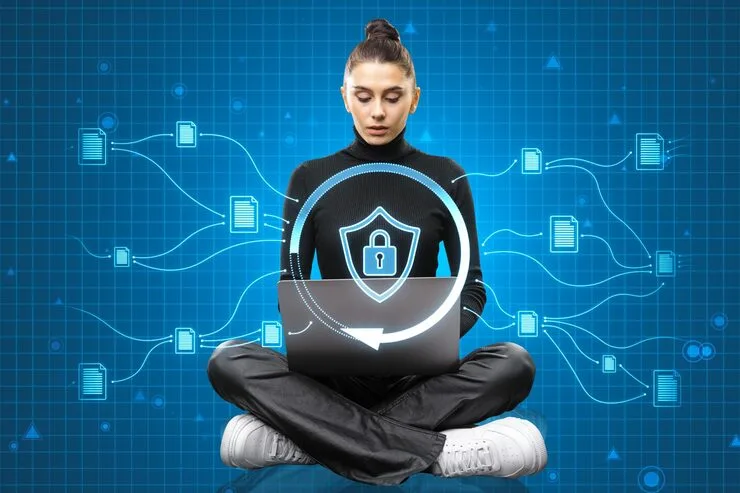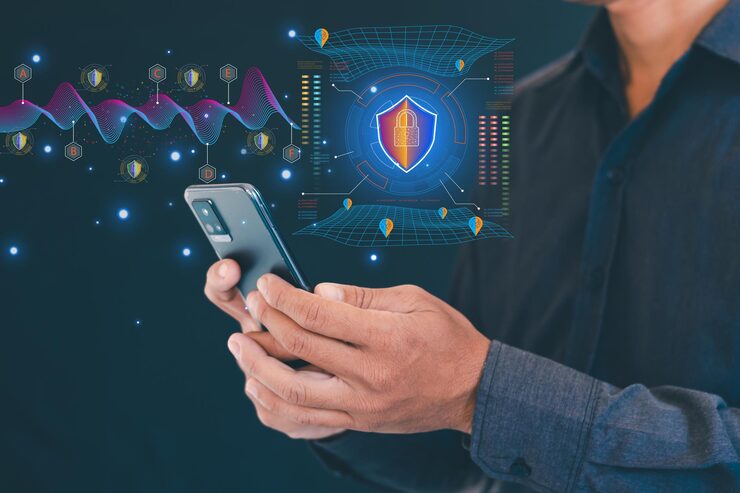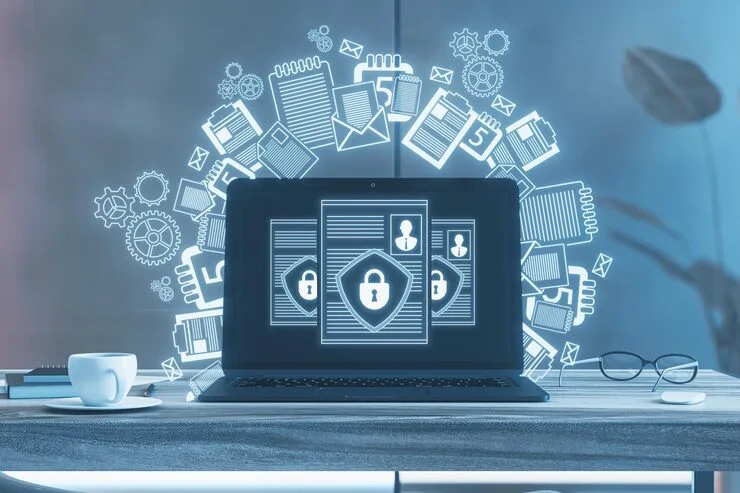Nowadays, everything is done online. Every user’s data is shared across the net. Personal files and information are stored on each device. Safety is the first step in the online world. Hackers target systems all the time. Cybercrime is increasing day by day. Everyone should learn their digital skills. It is important to keep your account secure. The net is easy to use but not secure. To be safe, some steps should be followed. This article talks about its important skills. Each skill makes you safer and more alert. Keeping your data safe is today’s goal. In the cyber world, only technology’s capability is protection.
Strengthen passwords
A secure login is essential when using the Internet. Therefore, each user must keep their account secure. Weak passwords allow hackers to exploit accounts more easily. Hence, users must create a unique and strong passcode for each login. They should set different and strong passwords for every app. Additionally, using special symbols and numeric digits strengthens passwords. Users can also generate random passcodes using a tool. Moreover, avoid keyboard patterns and simplified names. Finally, do not reuse old passwords.
It is safer to disable the autofill option. Password changes should be done routinely. Avoid passwords related to personal data. Safe manager apps help you keep track. Login alerts must be turned on. You should be notified of each attempt. Enabling the account lockout policy is a safer option. Creating strong passwords is part of the skill. Each user must learn the structure of the passcode. Complexity makes estimation difficult. It is best to have multiple layers of protection.

Always be wary of phishing
Phishing emails target thousands of users every day. These emails mostly send fake offers and alerts. The subject line is catchy but risky. Do not open mail from unknown senders. Do not download a file without checking. If the link is short, don’t click directly. Certificate required for secure mail. The sender’s domain should be checked carefully. Grammar errors are a common indicator of phishing.
A quick request can also be a trap. Therefore, no one has the money to verify. Meanwhile, finding a phone number is helpful. Also, never share information on unknown calls. Moreover, never send banking information through the mail. Fake websites look real. Thus, please verify. Phishing awareness training is helpful for every user. Additionally, spam filter settings must be enabled. The device should be scanned with an antivirus. Furthermore, reporting suspicious mail is also a safe practice. One of the biggest threats to online security is phishing.
Securing the network
Using a safe Internet is the first step to online safety. However, never do sensitive work on public Wi-Fi. For example, a hotel or cafe network can be dangerous. Fortunately, using a VPN protects the network. Through this, secure access is available through an encrypted tunnel. In addition, network monitoring is essential for home users. Also, keeping router settings updated is part of security.
To strengthen protection, the default login credentials need to be changed. Moreover, restricting wireless access is useful. Regularly, you should check the device list. If found, unknown devices should be blocked. Finally, a strong encryption mode must be selected. The WPA3 security protocol is the most secure. Using a firewall protects the network. The router firmware should be updated.
Using MacFilter can prevent unauthorized access. Port settings and open services should be monitored. A secure DNS setup enhances network security. Using a network intrusion detection tool is also helpful. Secure browsing is based on a strong network.

Manual backups run the risk of being forgotten. Backup encryption is great for privacy. Secure storage of sensitive files is essential. Every office should have a data recovery plan. Creating restore points saves time. Test maintenance should be done every month. Additionally, auditing is helpful for data security. Moreover, it is important to keep the space clean by deleting old backups.
Therefore, recovery software should be taken from a genuine and reliable source. Furthermore, backup folders should be in a safe location. In such cases, creating a password-protected zip file is useful. Especially today, after a cyber attack, the role of backup has become paramount.
Device & App Protection
A smartphone or laptop is a part of everyday life. These devices store a user’s personal and government-related information. Please see the app’s overview before installing. Never install an app from an unknown source. The Play Store or App Store is a reliable source. The device’s permission list should be checked regularly.
The camera’s and mic’s controls should be limited. Avoid giving background access to apps. Turn off the phone’s GPS and location services whenever necessary. Users should update the device’s OS regularly. Additionally, updates include new patches and fixes. Moreover, install antivirus software to protect your system. Also, use mobile security apps to scan for threats. Therefore, limit storage access for all apps. Meanwhile, monitor app behavior closely.
For added security, use a PIN or biometrics to log in securely. In addition, set a short auto-lock timer for added safety. Whenever possible, avoid public charging points. Finally, enable device tracking and remote wipe features. Overall, strengthening device settings helps users keep their data safe.

Conclusion
It is every user’s right to be safe in the cyber world. Every system can have weak points. By learning these skills, a user can become smart. Secure logins and backups are essential at all times. By securing the network, the probability of an attack is reduced. It’s best to keep apps under control for privacy. Knowledge is essential to avoid phishing. Every skill can protect your online life. Cybersecurity is not easy, but it is possible. All it takes is a little prudence and regular maintenance. Every step you take secures your future. Digital security will be a top priority in 2025. Every user should learn these steps today.


























